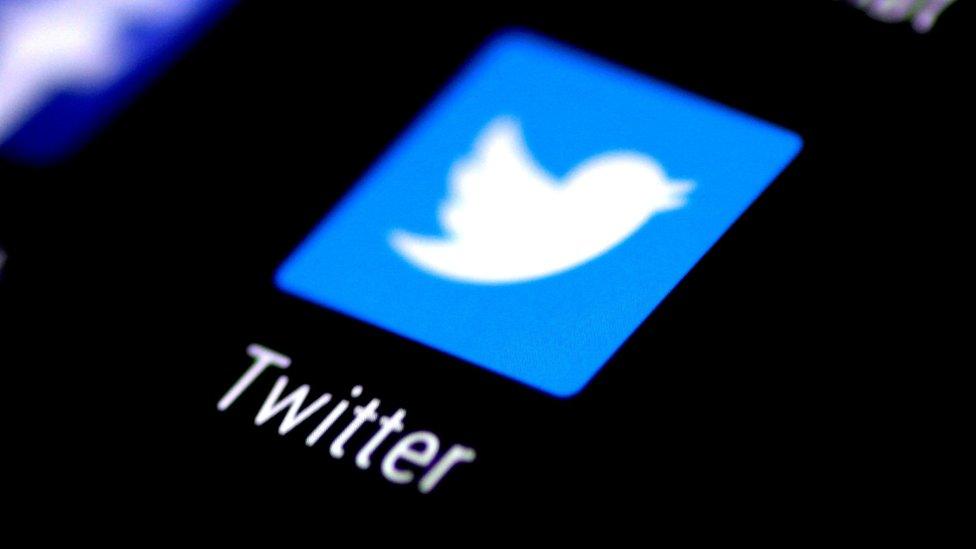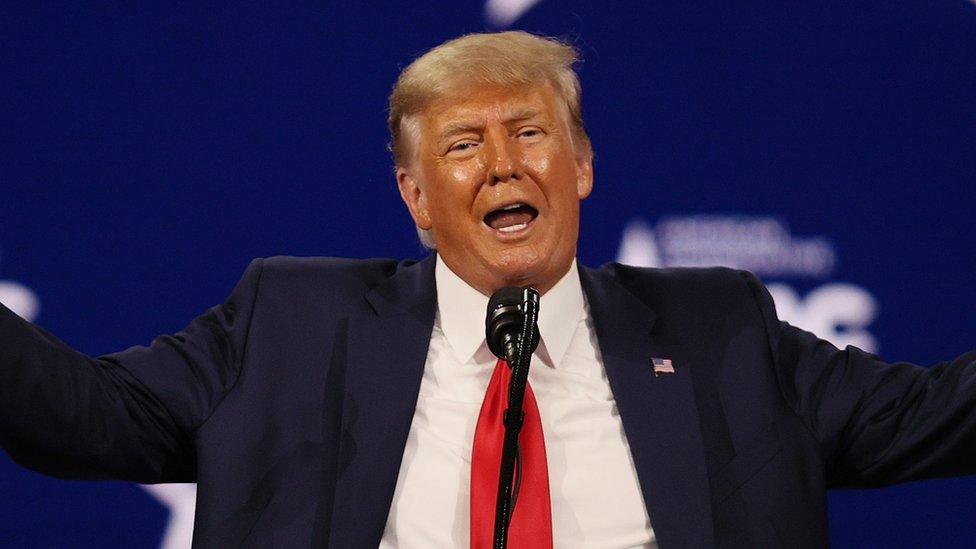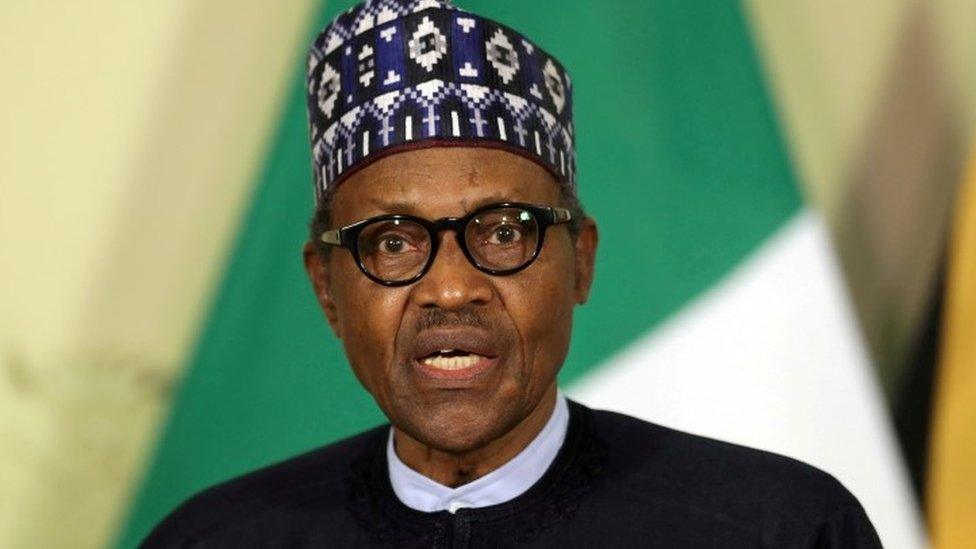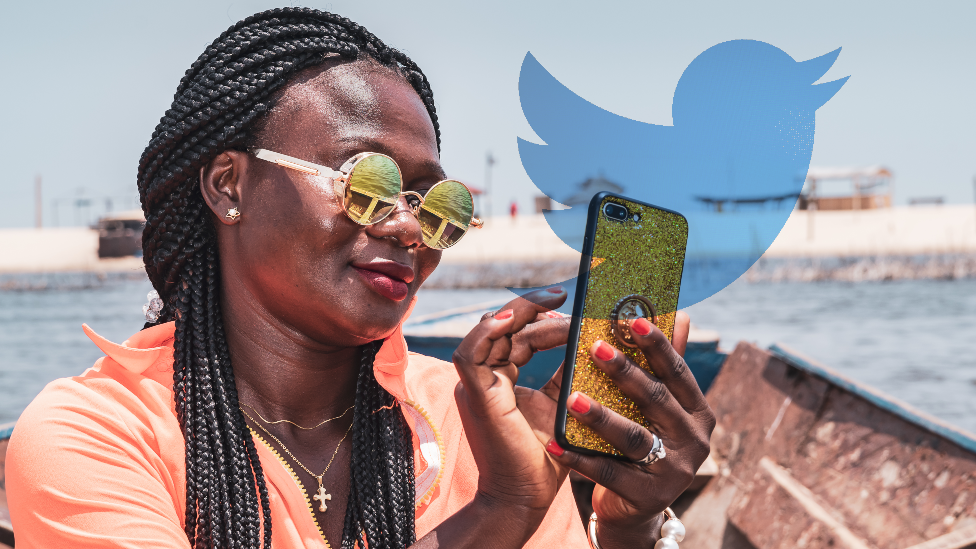Twitter Nigeria: Users struggle to access site after government suspension
- Published

Access to Twitter through Nigeria's main phone providers has been blocked, according to reports from Lagos and the capital, Abuja.
It is still accessible on some wi-fi networks.
This comes after the government said it was suspending Twitter operations in the country "indefinitely".
The ban was due to "the persistent use of the platform for activities... capable of undermining Nigeria's corporate existence", a statement said.
Twitter said Friday's announcement from Information Minister Lai Mohammed was "deeply concerning".
By Saturday morning, BBC reporters in Lagos and Abuja said they were unable to connect to Twitter through two of the countries largest phone networks: MTN and Airtel. Others have also been affected.
Access was still possible through some wi-fi providers, but this is not a common way to connect to the internet in Nigeria.
Search terms such as "VPN" were popular overnight, according to the search tracking site Trendsmap.
A VPN - or Virtual Private Network - connection makes it appear as if the user is accessing the internet from another country, and has been a way to get round similar bans in other countries.
Removal of Buhari tweet
The move by the government came just days after a tweet by President Muhammadu Buhari was removed for breaching the site's rules, though no mention of this was made in its statement.
Mr Mohammed has previously criticised the US social media giant's decision to take it down, calling it "double standards".
The tweet sent by Mr Buhari on 1 June referred to the 1967-70 Nigerian Civil War and to treating "those misbehaving today" in "the language they will understand".
A Twitter spokesperson said at the time that the post "was in violation of the Twitter Rules".
And in a statement on Friday, the company - which in April announced its new African headquarters would be based in neighbouring Ghana - said it was "investigating and will provide updates when we know more" about the Nigerian ban.
The government gave no details on how the ban would work in practice, or any explanation of how Twitter had undermined Nigeria's corporate existence.
Call for reversal
Its statement, which was released on Twitter, also revealed that the national broadcasting regulator, NBC, has been told to start "the process of licensing all OTT [internet streaming services] and social media operations in Nigeria".
Osai Ojigho, director of Amnesty International Nigeria, condemned the announcement.
"This action is clearly inconsistent and incompatible with Nigeria's international obligations. We are calling on the Nigerian authorities to immediately reverse the unlawful suspension and other plans to gag the media, repress civic space, and undermine Nigerians' human rights."

A long time coming
Analysis by Nduka Orjinmo, BBC News, Abuja
The Nigerian government has toyed with the idea of regulating social media in the country, and this administration has been obsessed with the idea since it came into office in 2015. Deleting the president's tweet, however, was seen as the final straw.
But it was the role Twitter played in the #EndSars anti-police brutality protests which shook Nigeria last year that truly sealed its fate.
Kiki, a student from Lagos, Nigeria can’t wait for 2020 to be over
The demonstrations were mostly organised on the platform and the company's CEO, Jack Dorsey, made donations to one of the leading groups of organisers. A special emoji was also created for the protests.
Twitter helped give Nigeria's many youths a voice. But in the eyes of the government, the company's role in galvanising the country's young population was a line crossed.
Yet the government appears not to have reckoned with the ingenuity of #EndSars protesters. People are already downloading VPNs to bypass the block when it happens.
Related topics
- Published5 June 2021

- Published2 June 2021

- Published25 April 2021
